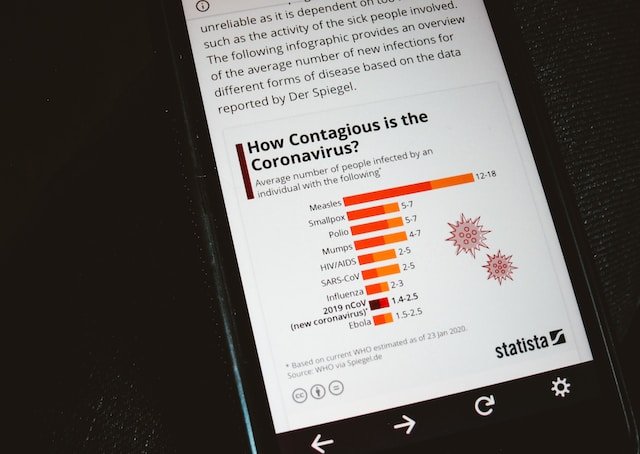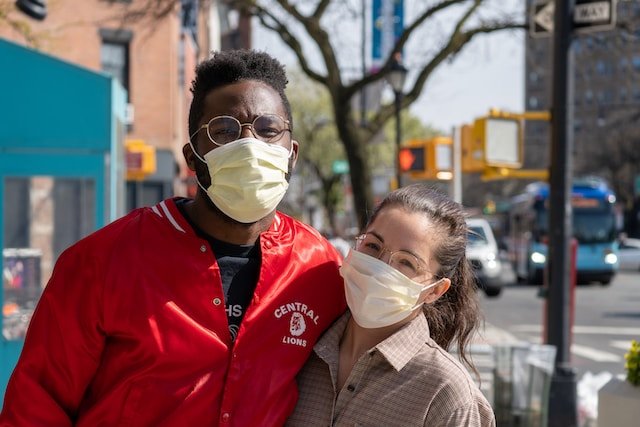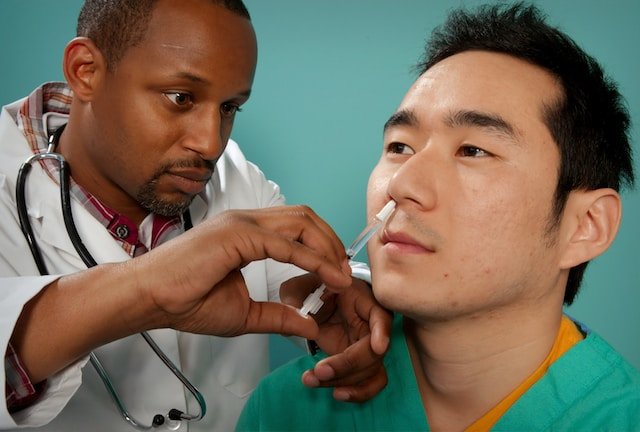What To Say To Someone Who Has Covid Email
I hope that this letter ensures you are in the best health possible regardless of the circumstances. I was devastated to learn about your diagnosis of COVID-19, and I would like the patient to know you’re always in my prayers and thoughts. Be strong and committed to your recovery. Remember that you’ve got a great family in your corner. If I’m able to assist you, don’t hesitate to ask me. We wish you a speedy recovery and complete recovery.
How Do You Tell Anyone That You Have Tested Positive For Covid?

It is imperative to communicate importance promptly when you inform someone that you’ve confirmed positive for COVID-19. Contacting people promptly you’ve been in close contact with can help them to take appropriate measures and also get tested for themselves. This will significantly lower the chance of spreading the virus in your own community.
Choosing the Right Method of Communication
If you are sharing sensitive information, it’s important to choose the right method of communication based on the relationship you have with the person. Here are some ways to let someone know about the positive COVID-19 test results:
Direct In-person Communication
When the individual is an immediate family member, close friend, or someone that you have had recent contact with, a face-to-face conversation could be the best method. It is important to be aware of the appropriate precautions needed to prevent transmission in the course of conversation. Keep a distance between you and your partner or wear a mask and select an open-air location whenever it’s possible.
Phone Call
A phone call is a great method of having a private conversation while maintaining a physical distance. This lets you express your concerns and also provides the other party for you to clarify your concerns or get clarification.
Text or Email
In instances where face-to-face interaction is not feasible or desirable, the use of text messages or the email may be utilized to communicate the message. But, it’s important to be aware that written messages might not have the personal touch that comes with direct communications.
Drafting the Message
When writing the message, it’s crucial to strike a balance between communicating the severity of the situation and offering empathy and support. Here’s a template that you could use to help you:
I am currently following the recommendations of health experts and self-isolating to avoid any further transmission. If you’ve been in contact with me in recent times, I encourage you to be tested and watch out for any indications.
Please be aware that I am available to offer any assistance that you might require during this difficult time. Should you need to ask any concerns or questions, please get in touch with me.
Providing Additional Resources
Alongside telling the person about the positive COVID-19 test you have taken, You should also consider sharing trustworthy sources of information about COVID-19 symptoms, testing facilities as well as local health guidelines. Sending them to official sites or trusted health organizations will assist them to stay well-informed and take the correct actions.
Handling Reactions and Responses
It’s important to prepare to deal with different reactions when telling anyone about your positive COVID-19 test. Some people might feel nervous or nervous, whereas some may be unsure or have worries. React to their feelings with compassion and compassion.
Confidentiality and Privacy
Be aware that your health information is a sensitive matter, so protecting your privacy is vital. Only give this information to people who are required to know, for example, your closest contacts and healthcare professionals. Do not share your health condition on social media platforms or other platforms that are public.
What Should You Do If You Suspect That A Friend Has COVID?

Finding out that a loved one has been diagnosed with COVID-19 may be a stressful experience. However, it is crucial to be calm and encouraging during this stressful period. The person you are supporting may be suffering from anxiety, fear, or fear, so providing them with emotional assistance can make a huge impact. Make them aware that you are there for them and are willing to help in any way that you can.
Encourage Isolation and Quarantine
The first action following a COVID-19 positive test is to advise your friend to stop taking any action immediately. This will prevent further spreading of the virus to other people they meet. If your friend is in contact with other people who live in the same area, they should remain in a separate space and have a bathroom that is dedicated to them whenever feasible. Avoiding contact with close friends and sharing personal items could aid in limiting transmission.
Advise Seeking Medical Guidance
While the majority of cases of COVID-19 are mild, a few cases may develop into severe, especially for those at high risk. Encourage your friend to call their physician immediately to discuss the symptoms and get professional advice regarding the treatment of the disease. This is essential, particularly when they suffer from any medical conditions which could cause problems.
Contact Tracing
Find out who your friend has been in contact with, specifically within the first 48 hours prior to experiencing symptoms or being tested positive. Inform them of the importance of tracking contact to identify potential sources of infection and also prevent the spread of infection. Encourage them to notify those who they’ve come into contact with to have them examined and to take appropriate precautions.
Monitor Your Own Health
As someone who’s had contact with your acquaintance, it’s important to keep an eye on your health. Even if there aren’t any signs or symptoms, you could be asymptomatic and spread the infection to other people. Be extra cautious, like wearing masks and using a good hand wash, and ensuring that you are physically separated from people around you until you are certain of your health.
Educate Yourself on COVID-19
The power of knowledge is an effective weapon in the fight against the spread of the disease. Make sure you learn more about COVID-19, its signs, as well as the modes of transmission and measures to prevent it. Becoming up-to-date will not only assist you in making better choices for yourself, but it will also allow you to share reliable details with other people, dispelling myths and misconceptions.
Offer Practical Support
Being in quarantine or isolation can be difficult emotionally as well as logistically. Provide practical assistance to your loved one by helping them with the delivery of groceries or picking up medication and assisting in other essential chores. Also, being connected via video calls or phone calls can be a great source of emotional support throughout their loneliness time.
Promote Mental Health and Well-being
The pressure of battling COVID-19, in addition to the feeling of being in a state of uncertainty and isolation, can be detrimental to mental well-being. Help your friend prioritize their health in this period of period. Encourage them to engage in activities that help with relaxation and reduce stress, like exercising, meditation, or taking part in activities that they like.
Follow Local Health Guidelines
Keep abreast of the most recent guidelines and suggestions issued by regional health officials. These guidelines could include restrictions on gatherings, travel, and other prevention measures. Following these guidelines will not only keep you and your loved ones secure, but it also aids in the efforts of the entire community to prevent the spread of the virus.
Avoid Stigmatization
It is vital to be careful not to stigmatize your acquaintance or anyone else who has tested negative for COVID-19. The virus can strike any person, irrespective of background, and stigma hinders efforts to fight the epidemic efficiently. Show compassion and empathy to the affected people and promote a welcoming and accepting atmosphere.
How Do You Handle Someone With COVID?

COVID-19, also referred to as the coronavirus-related disease 2019, can be caused due to the coronavirus of severe acute respiratory illness 2 (SARS-CoV-2). It is spread through respiratory droplets whenever an affected individual coughs, sniffs or speaks. The virus is also able to survive on surfaces, which makes it extremely contagious and requires strict measures to prevent it.
Identifying COVID-19 Symptoms
Recognizing signs of COVID-19 is essential to prompt medical attention and prevent any further spreading. The most common symptoms are cough, fever or breathlessness, and fatigue, as well as muscular or body aches, loss of smell or taste and sore throats, nausea, congestion, or diarrhea. In the most severe cases, the infection could lead to pneumonia and acute respiratory distress syndrome (ARDS), and other life-threatening issues.
Guidelines for Handling Someone With COVID
1. Isolation and Quarantine
When you are concerned that a person within your family or proximity has contracted COVID-19 or is showing symptoms, it is imperative to isolate them immediately. You should isolate the patient in a room that has sufficient ventilation and a separate bathroom if it is possible. If space is not available and you have to designate a space for them and ensure that you ensure that it is clean.
2. Seek Medical Assistance
Instruct the person affected to consult a doctor and be checked for COVID-19. Get in touch with local health officials or health experts to guide you through the process of testing and follow their protocols for quarantine.
3. Protective Measures
The wearing of a mask, the practice of good hand hygiene, and keeping a distance between yourself and the person infected are crucial protection measures. Use a top-quality mask and make sure that the infected person wears a mask as well to limit the transmission of respiratory drops.
4. Disinfecting Surfaces
It is recommended to disinfect surfaces frequently touched, like doorknobs, remote controls, light switches, and electronic devices, using an approved disinfectant from the EPA. Clean and disinfect shared objects and spaces frequently to avoid cross-contamination.
5. Monitoring Symptoms
Monitor the person’s symptoms as well as their general health. If the condition gets worse or becomes more difficult to breathe, for example, difficulty breathing or constant pain or pressure in the chest area, seek medical attention right away.
6. Hydration and Nutrition
Encourage those suffering from COVID-19 to stay hydrated and to eat a balanced diet. Nutrition and hydration is vital to maintain the immune system in times of disease.
7. Emotional Support
Being affected by COVID-19 can be physically and mentally demanding. Give emotional support to the affected person, and assist them in staying in touch with family and friends via the Internet.
8. Caring for Yourself and Others
When you are providing care to patients suffering from COVID-19, it is vital to put first your safety and that of those who are around you. Use these guidelines to protect yourself and avoid the spread of the virus:
Wear Proper Personal Protective Equipment (PPE)
Always wear gloves, a mask, and other suitable PPE when in close proximity to the person infected or interacting with their possessions.
1. Hand Hygiene
Hands should be cleaned frequently using soap, and water for a minimum of 20 minutes. Apply hand sanitizer using a minimum of 60% alcohol if soap and water aren’t readily available.
2. Limit Close Contact
Limit physical contact with the ill person and keep the distance as far as is safe.
3. Ventilation
Make windows open and ensure proper air circulation in the living area to minimize the amount of virus particles in the air.
4. Disinfection
Always wash your hands regularly, especially after handling shared objects or getting in contact with surfaces that may be contaminated.
5. Separate Utensils and Personal Items
Beware of sharing dishes, utensils, and personal items with the person who is infected to avoid transmission.
6. Stay Informed
Be informed about the most recent guidelines from reliable authorities and health organizations to be aware of any changes to COVID-19 management.
What Is The Best Way To Address Someone Who Has A Long COVID?

If you are interacting with someone suffering from long COVID, empathy is essential. Beware of dismissive or insulting remarks. is vital to creating an environment that is supportive and tolerant for the individual affected. The most important thing is to be kind and recognize their challenges without demeaning their struggles.
Do not minimize their symptoms
The most damaging way to talk to someone suffering from Long COVID can be to minimize the symptoms. The phrases “It’s just fatigue; you’ll get over it” or “You’re just being lazy” can be extremely negative and insulting. Be aware of the fact that Long COVID-related symptoms are severe and unpredictable, impacting various aspects of a person’s life. Accept their symptoms and provide assistance instead.
Avoid Blaming or Judging
The blame game of blaming someone else for contracting COVID-19 or judging their lifestyle choices could affect their mental health. The words “You should have been more careful” or “You brought this upon yourself” just adds stress and guilt. Instead, give them words of encouragement and compassion throughout their journey to recovery.
Don’t Offer Unsolicited Medical Advice
If you’re not a healthcare professional who is actively involved in their treatment, avoid giving uninformed medical advice. Patients with COVID that is long are likely to consult medical professionals who are aware of their specific condition and requirements. Unmasking for advice could be detrimental, and it is best to trust the expertise of their medical team.
Avoid Comparing Their Recovery to Others
Each person’s experience through Long COVID is different, and comparing their recovery with others can be detrimental. It is not wise to say that “My friend had COVID, and they got better quickly” or “You should be over it by now” ignores the complexity of Long COVID and the various ways it affects people. It is better to acknowledge the uniqueness of each person and offer continuous assistance.
Do not force them into “Get Back to Normal.”?
Long COVID may cause extended periods of brain fog, fatigue, and other symptoms that limit a person’s capacity to return to their normal routine. The pressure to “get back to normal” can be overwhelming and discouragement. Instead, be compassionate and patient as they work their way through their recovery. Help them with any tasks that they may find difficult but without being rude.
Avoid Using the Term “Long-Hauler” Unnecessarily
Although the phrase “long-hauler” is used to identify people with Long COVID, When used in a way that is too frequently, it could inadvertently identify people with the condition and make them feel that their identity is defined solely by their condition. It is crucial to remember that they are people with distinct characteristics that go in addition to their health conditions. Be respectful of them without looking at their health.
Don’t Disregard Mental Health?
Long-term COVID can cause a lot of damage to the mental health of a person, which can lead to depression, anxiety, and other struggles with emotions. Neglecting health issues related to mental health or saying things such as “Just think positive thoughts” could be detrimental. Instead, encourage conversations about their concerns and offer support from professionals or resources should they need it.
Do not question their symptoms?
When you speak to someone suffering from Long COVID, you should refrain from doubting the validity of the symptoms. It is not your responsibility to challenge or question the authenticity of their experience. Keep in mind that the consequences of Long COVID may be varied and complex, affecting a variety of body systems and functions.
FAQ’s
How are you feeling?
First and foremost, I genuinely care about your well-being. How you feel matters to me, so please don’t hesitate to share your experience with me. If you need someone to talk to or have any concerns, I’m here to lend an empathetic ear.
Is there anything I can do to help?
During this period of isolation and recovery, you may require some assistance with groceries, errands, or other essential tasks. Please feel free to let me know if there’s anything I can do to ease your burden.
How can I support you emotionally?
Being quarantined can take a toll on one’s mental health. Whether it’s sharing uplifting messages, funny memes, or simply checking in regularly, know that I’m here to support you emotionally throughout your recovery journey.
Have you informed your close contacts?
It’s crucial to inform anyone you may have been in close contact with recently so they can take necessary precautions and get tested if needed. If you need help notifying people, I can assist you in contacting them discreetly.
Have you sought medical advice?
If you haven’t already, please ensure that you’ve consulted a healthcare professional regarding your symptoms. They can provide personalized guidance on managing your condition and steps to take if your symptoms worsen.
How can I help prevent the spread of COVID-19?
Let’s do our part in controlling the spread of the virus. I pledge to practice good hygiene, wear masks in public, and maintain social distancing to protect both myself and others. Together, we can make a difference.


















